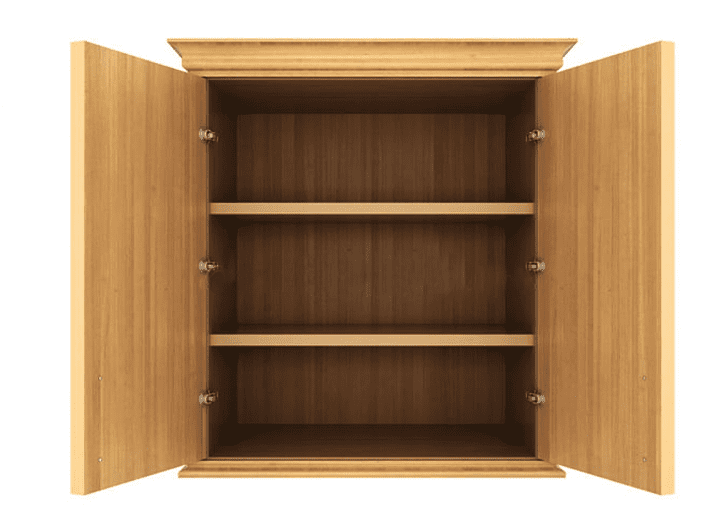As stock markets plunge in a panic over COVID-19, and oil prices plummet as Saudi Arabia and Russia engage in a price war that has the consequence of possibly making some of the product coming out of Alberta worth less than the cost of actually producing it, there will be increasing demands for fiscal stabilization for Alberta, Saskatchewan, and Newfoundland and Labrador. Add to that, there will be additional measures that the government is looking to implement in the event that a worsening of COVID-19 hurts the economy even further. Amidst this, we're hearing the Conservatives tut-tut, and insist that the government had "spent the cupboard bare," that they hadn't saved for a rainy day, and that their "sky-high taxes" was killing economic growth. Of course, none of that is actually true, but beyond that, the policy prescriptions they are advocating would seem to me that they are aiming to repeat the mistakes they made with the Great Recession, particularly in their obsession with balancing the budget.
One of the lessons that it seems to me that they didn't learn from the 2008-9 downturn was the mismatch between monetary and fiscal policy. The Bank of Canada hinted at it not being really allowed to openly advocate for government policy but the criticisms were there if you paid attention. Essentially, because the Conservatives turned off their stimulus taps too soon (taps they turned on too late to be effective, and spent on projects that did nothing to enhance productivity) because they wanted to achieve a faux balanced budget in advance of the 2015 election (the amount of savings they booked in that budget that were never going to materialize, particularly around things like Shared Services Canada and the Phoenix Pay System, mean that it never really was balanced), they left it up to the Bank of Canada to use their monetary policy tools to keep stimulus in the economy. That meant lower interest rates, and it fuelled the household debt that is at record levels, as well as the bidding wars in the housing market that drove prices higher. After all, debt was cheap.
"This led to families having more debt, and it widened the gap between the wealthy and everyone else," Bill Morneau stated in his speech to the Canadian Club of Toronto last Friday. "When our government came to office, we made the decision to use some of our considerable fiscal room to create growth for Canadians. What those who criticize us for this policy are ignoring is that global conditions changed over the period of the 2015 election and since."
Interest rates never recovered, not even making it back into neutral territory before this latest bout of economic turbulence that forced them to make a 50-basis point cut, something which could reignite that same consumer spending problem and increase Canadians' debt burden even further. And it's why I'm a bit shocked that the Conservatives seem keen to repeat these same mistakes as before.
As part of their Budget 2020 demands, laid out over the last weekend, Pierre Poilievre demanded, among other things, that there be a plan for the deficit be "phased out," that homeowners be exempt from the mortgage "stress test" for renewals, and that the 10-percent luxury tax on cars, boats and planes costing over $100,000 be cancelled. In other words, they are setting up the conditions for the very same problems from 2008-9 be replicated, only the Bank of Canada doesn't have much more room to cut. We can't rely on monetary policy to provide stimulus any longer, and we're going to have to rely on fiscal policy much more this time around, particularly if things get worse.
But this is also the part where the "cupboard is bare" rhetoric gets it completely wrong. The deficits this government has been running which did work to stimulate the economy and get the country's growth back on track (until global trade tensions started to derail them) are both small relative to the size of our economy, but more importantly they're sustainable. The figures also include pension liabilities, which are impacted by the low interest rates far more than debt repayment figures are. The bond yields are below the rate of inflation, and they were well below the rate of GDP growth until the poor Q4 numbers, which means that it is essentially free money that a government can use to invest in things like enhancing productivity, or as this government has, poverty reduction. In fact, right now the thirty-year bond yields are at 0.7% interest that means that the market is willing to take all of the borrowing that the Government of Canada wants to do. If the cupboard was indeed "bare," and investors were really concerned about the size of our deficit, the market wouldn't bite, and the bond rates would be at much higher interest rates.
Add to that, the Conservative talking point about "sky-high taxes" is also false while they base it in part on a discredited Fraser Institute study that counted the cancellation of boutique tax credits as "tax increases," the revenue as a share of GDP figure has crept up since the Harper era by 1.1 percent, the total share is still below what it was in the fifties, sixties, seventies, eighties, and nineties. They are nowhere near what they used to be, so repeating this talking point just adds to the mistruths they have continued to circulate in the public sphere.
This having been said, has the Liberal government managed to communicate any of this effectively? Of course not. They largely stick to bromides about "investing in Canadians," and repeating that they have "fiscal room" without explaining why. In fact, Morneau's speech last Friday was the most pointed I've ever seen him be about the problem with the Conservative record, and it's not nearly enough to break through the endless repetition of their falsehoods, which media has largely been amplifying rather than challenging. After all, nearly everyone in this country has been brainwashed by the homilies that government debt is somehow analogous to household debt, which is completely wrong, and it's up to the government to move people away from that belief, but they won't do it with platitudes. And unless they start challenging this orthodoxy more forcefully, the Conservatives and their economically illiterate talking points will continue to take up all of the oxygen, leaving Canadians uninformed and irrationally angry.








